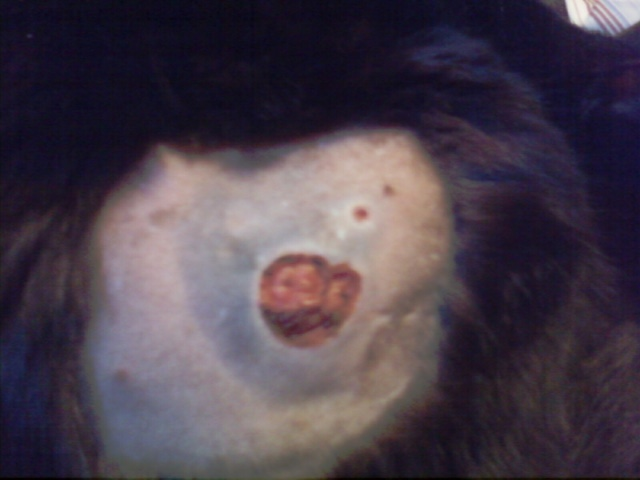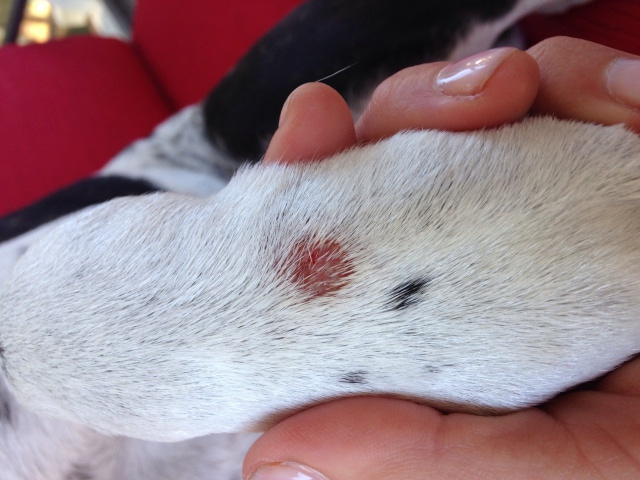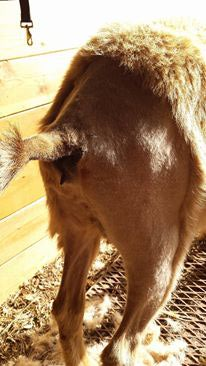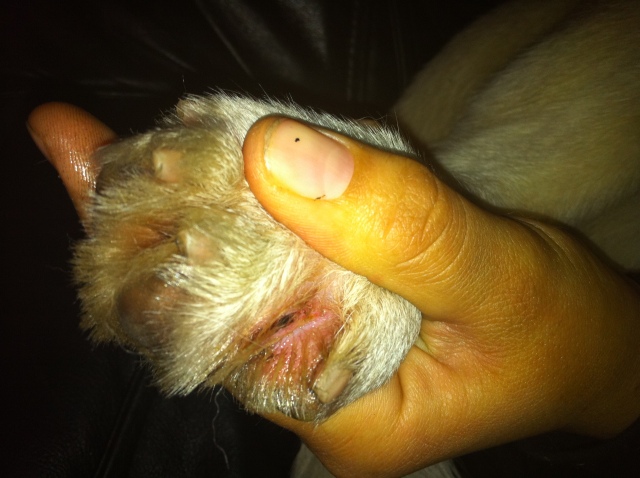QuestionOur dog has been experiencing frequent and sometimes bloody urination. A vet recently told us he has either a kidney infection or kidney stones. Antibiotics didn't cure the problem, so we think he probably has kidney stones. What can be economically done for canine kidney stones? Thank you.
AnswerPhil,
I am forwarding a listed description and information pertaining to kidney stones in dogs. I hope that will be able to provide you with the answers you are in search of. I would be more than happy to provide you additional information or help with any other concerns you may have as to this condition. Feel free to get back to me.
Jodi
Nephrolithiasis is the condition marked by the presence of renal calculi or kidney stones.
One function of the urinary system is the removal of body wastes in liquid form. Some mineral wastes are only slightly soluble and may form crystals. If the transit time of crystal movement through the urinary system is prolonged, crystals may interact and grow into stones.
Causes
Several types of stones can affect cats and dogs. Each type of stone is often associated with its own specific cause. General causes include:
Underlying urinary tract infections or infection within the kidney
Genetic defects
Dietary factors or supplements
Administration of certain medications
Concurrent or underlying conditions or illness
Overall, kidney stones are slightly more common in the female dog and are generally seen in the middle-aged animal, although they can be seen in any age. There are different breed predilections for each type of calculi, and in the dog, although any breed can be affected; there is a predilection for the miniature Schnauzer, miniature Poodle, Yorkshire terrier, Lhasa apso, Shih Tzu, Bichon and Cocker Spaniel.
Urine retention and the formation of concentrated urine may predispose to calculi.
What to Watch For
Bloody urination
Abdominal pain
Recurrent urinary tract infections
Vomiting
Clinical signs depend on the exact location, size, shape and number of kidney stones. Affected individuals may have no clinical signs. Other signs such as painful urination or frequent urination may be seen in patients who have a concurrent lower urinary tract infection. Some patients may be extremely ill if they have associated kidney failure or severe infection.
Diagnosis
Complete blood count (CBC)
Biochemical profile
Urinalysis
Bacterial urine culture
Radiographs (X-rays)
Abdominal ultrasound or excretory urography
Treatment
Depending on the patient, recommended treatment options may vary.
Inactive nephroliths may only require periodic monitoring.
If the stones are an incidental finding or the pet is not having severe clinical signs, medical and/or dietary dissolution may be attempted. It is important for both you and your veterinarian to monitor your pet very closely during this period, as it is possible that not all stones can or will dissolve.
If the patient is in kidney failure or is having severe clinical signs associated with the presence of the stones, their removal, either surgical or by lithotripsy, would be recommended.
Antibiotic therapy is indicated in those patients with concurrent urinary tract infections.
Fluid therapy is indicated in those patients who are dehydrated, have severe infections, or have concurrent kidney failure.
Home Care
If your pet is on a stone dissolving diet, complete compliance is necessary. NO snacks or other diets are permitted, as these may negate the beneficial effects of the special diet. Administer all medication and return for follow-up as directed by your veterinarian.
If your pet is being treated for nephrolithiasis and suddenly seems ill, contact your veterinarian at once.
Preventative Care
Eliminating urinary tract infections may help prevent nephrolithiasis. Treating and controlling underlying disorders may help prevent recurrence of stones.

 Blue Skin Around Abscess
Question
Kittys Wound
A few weeks ago we noticed
Blue Skin Around Abscess
Question
Kittys Wound
A few weeks ago we noticed
 Where do I begin?!
QuestionGranuloma
Staph
QUESTION: Hello!
Where do I begin?!
QuestionGranuloma
Staph
QUESTION: Hello!
 excessive allround hair-loss
Question
Laila
I have a female lab, 4 years of age. She
excessive allround hair-loss
Question
Laila
I have a female lab, 4 years of age. She
 Goat Pregnancy
Question
Hoots back end Hoots bag
I have a
Goat Pregnancy
Question
Hoots back end Hoots bag
I have a
 toe web injury
Question
foxy toe
I noticed a cut on the web of one of
toe web injury
Question
foxy toe
I noticed a cut on the web of one of